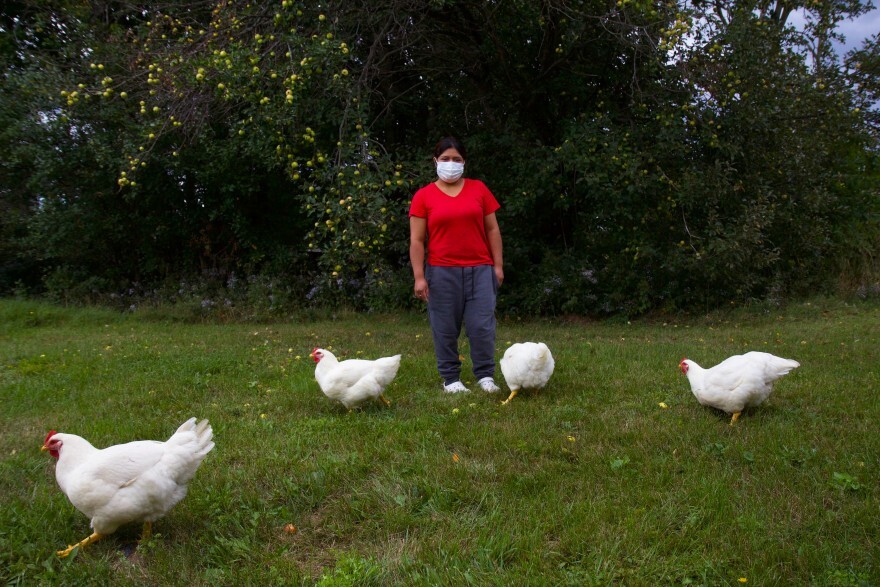How Vermont Has Vaccinated Its Farm Workers

Eva, who works on a large dairy farm in Franklin County, Vt., is among those who have received a COVID-19 vaccination. (Elodie Reed/VPR)
Outside a mobile home in Vermont’s Franklin County, large white chickens patrol the yard. Green fields roll out in every direction. Big sky stretches overhead. This is where several dairy workers live.
Among them is Eva. We’re using first names to protect worker identity and avoid employment or legal repercussions.
Eva is 30, and has worked at this large dairy farm for 12 years. She has a daughter in the 6th grade, and when Eva isn’t on her 12-hour shift or getting ready for the next day, they play.
Elean, 21, has been at this farm for about two years. He currently works the night shift, solo, in the barn.
“So I work all night, and I’m the one that moves the cow,” he said.
Puedes leer la versión en español, aquí.
During the day, Elean says he tries to sleep and get a little bit of exercise — he lifts weights.
Like many farm workers, neither Eva or Elean have a lot of free time, which is one barrier for both COVID vaccination efforts and health access in general.
“There’s a lot of challenges around access to transportation, access to language supports, depending on whether we’re working with the Jamaican population or working with the Latino farm worker population,” said Naomi Wolcott-MacCausland, the migrant health coordinator with University of Vermont Extension. “Compounded by the fact that we are dealing with a new virus and new vaccines and hesitancy that come along with that.”
Despite those challenges, community health partners here in Vermont have vaccinated more than 1,500 farm workers. Wolcott-MacCausland says the inoculation rate among these communities mirrors the state’s overall high vaccination, which is nearing 90%.
Check out the full version of this story, including audio, at VPR.org.
